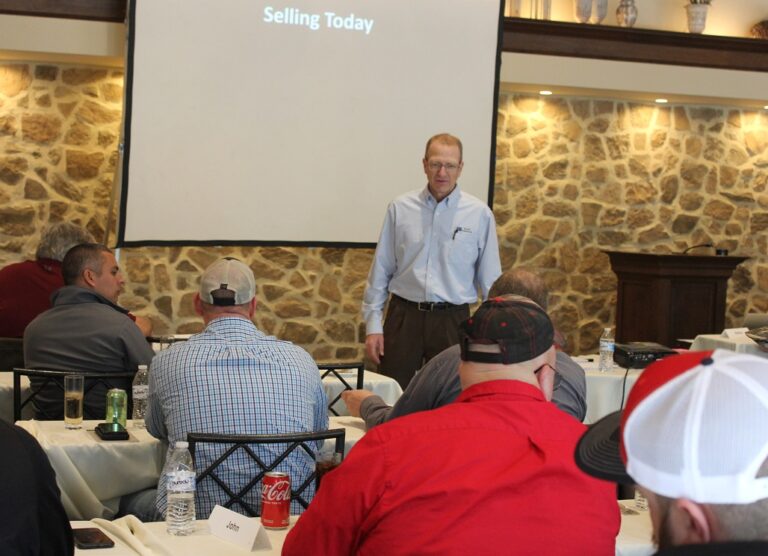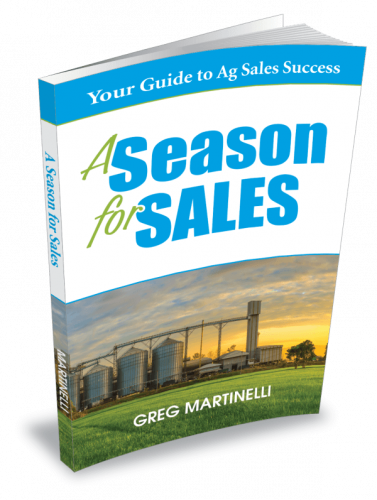That’s why your customers need you now more than ever before
Pick up any news publication in any industry or watch any news channel and you will find it loaded with negative news. Go to any of their websites and you will see the same scary articles for you to click on.
I have talked about this issue many times over the years in my training workshops and coaching discussions. To prove it to a recent group, I took my weekly agribusiness newspaper and counted up every single article into three categories: Negative, Positive, or Neutral.
I scored them negative when an article reflected an overtone of doom, gloom, or impending disaster. I counted it as neutral when it was a statement of facts or a story that had no real emotion either way. For the positive, I counted anything that was inspiring, positive towards the future of farming, or made me feel excited about our industry.
The reason there are so many negative headlines is that it’s intriguing and exciting. It gets us interested. It gets us to buy the paper, tune in at 10, or click on the story. It’s called clickbait. After all, how long would we watch a news report if the headline was, “Not much happened today. The weather was ok. Everything went well”?
The count was 13 negative articles, 5 neutral articles, and 3 positive articles.
The problem with all the negativity is that it can make us all overly pessimistic about our industry and life. It wears on people and soon, everyday conversations are more negative than positive. This situation has never been worse than during the pandemic. Every news angle is trying to go one step beyond the competition. It’s a race to the bottom of emotions.
Agribusiness has its own set of panic topics. Trade wars, high input prices, consumer demands, weather. This year it’s a drought. Have you had a drought discussion in the last 15 minutes? That’s what prompted me to actually make a count of positive and negative articles in that recent publication.
The problem for Salespeople in this situation:
- We love to jump on the bandwagon of despair. On sales calls, we want to connect and identify with our customers. We want to let them know that we know how tough it is out there farming. So, we commiserate with them. In a small way, we actually do connect with them. But at what cost? We sound just like all their friends and every other salesperson who comes along and wastes their time by depressing them with bad news about the latest drama.
- The negativity makes it really hard for us to sell. If you commiserate with your customer about how hard it is to make money farming, it’s difficult to then try and sell them. Why put more money into something that isn’t making money? By joining in the negativity, we actually make it more difficult for ourselves to get excited about what we can do for our customers.
The Opportunity:
- Stop It! Literally, stop joining in. Stop bringing it up. It’s doing you no good. The little satisfaction you get and the little connection you get by bringing it up is killing your sale.
- Differentiate yourself from all the other salespeople out there. One way is to have your own unique perspective on those topics. Figure out a way to either be positive about your industry or at the very least neutral.
- Come up with solutions. Instead of repeating the negative headlines, come up with solutions that your product or service provides. Risk and fear are a huge part of every farming operation. How do you help manage risk and reduce fear?
Sometimes, we just need to take a step back and be aware of how we act. This pattern of jumping on the negative news bandwagon is so rampant in agribusiness. I think we forget sometimes that there are 7 billion people increasing to 10 billion in a short period of time and every one of them wants to eat three times a day. That’s not changing. The best news for agribusiness and humanity is that more and more of them are eating three times a day. Again, that’s not changing. People are not deciding to stop eating. That awareness should make you and your producers feel a lot better about what we do….Feed a growing population on fewer acres year after year…forever.


